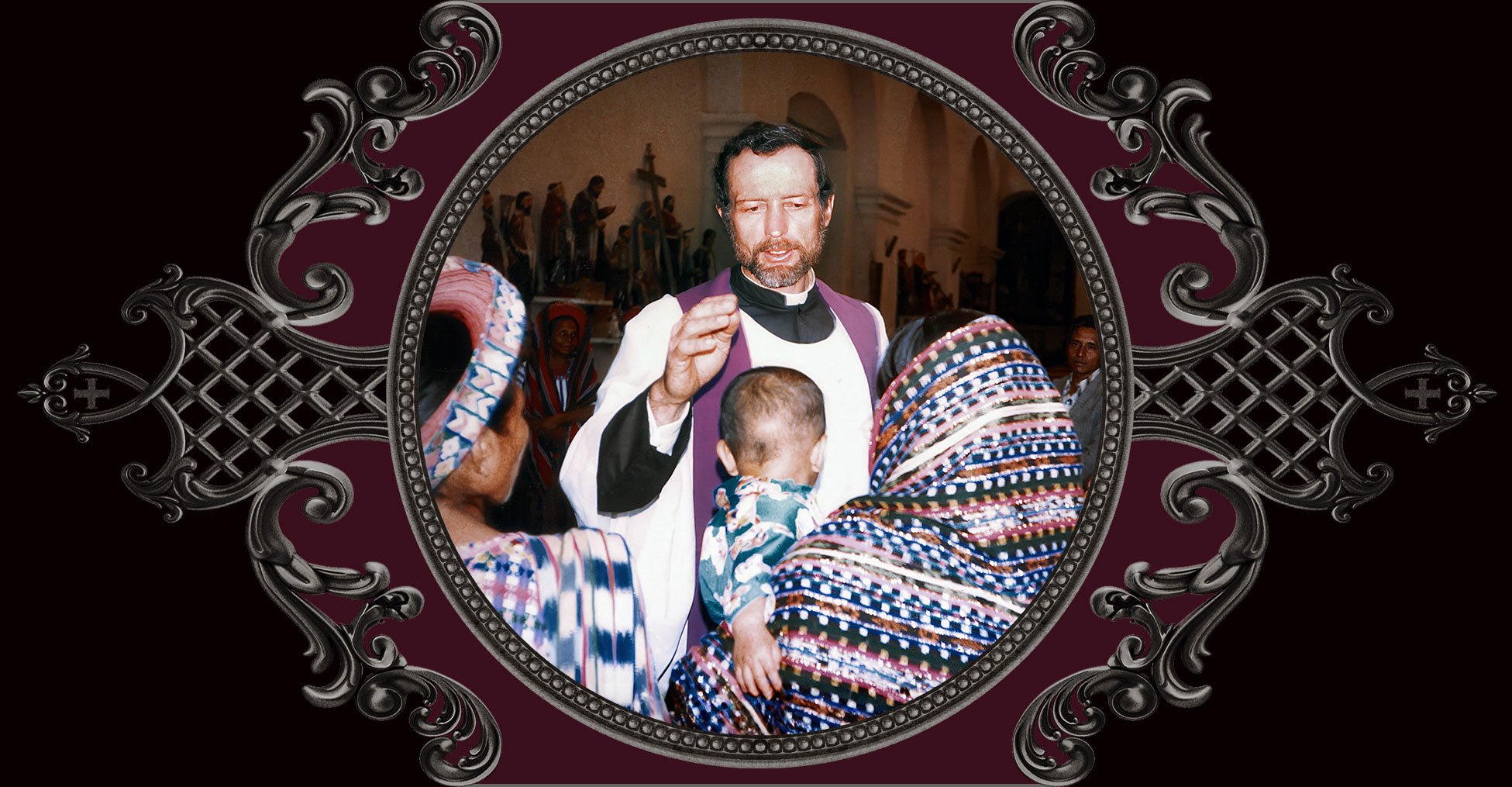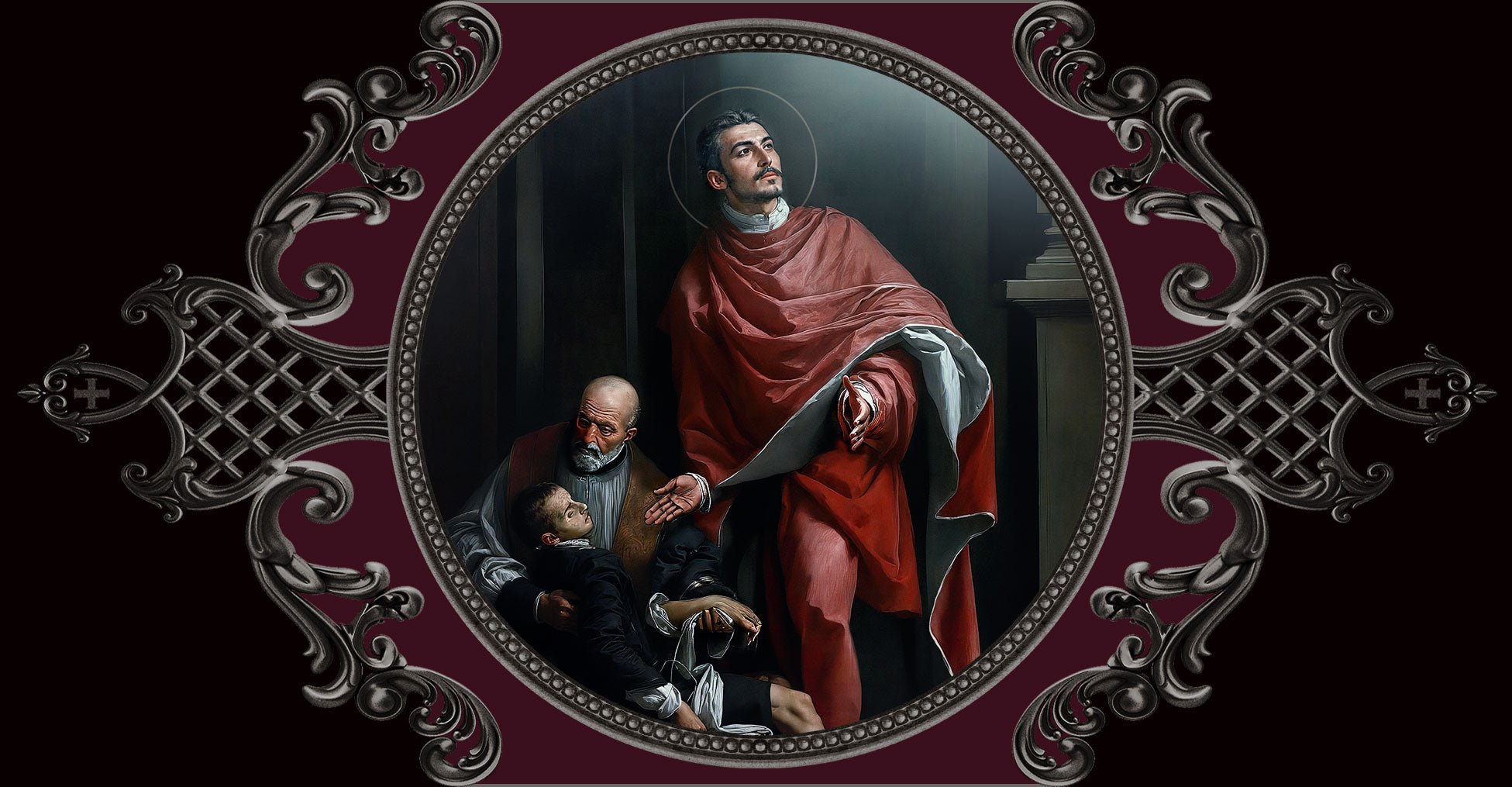
July 28 + Blessed Stanley Rother
An Oklahoma farm boy, Stanley Francis Rother was born March 27, 1935, in Okarche, Oklahoma. Ordained a priest for what was then the Diocese of Oklahoma City and Tulsa, he served in the diocese’s mission in Guatemala for 13 years. Seeking justice in the midst of a protracted civil war, Father Rother fought courageously for the well-being of his people in combating a culture that was excessively hostile to the Catholic Church.
The oldest of four children raised on a farm, Stanley worked hard doing the required chores, attended school, played sports, and was an altar server. While in high school, he began to discern the possibility of a vocation to the priesthood. He was accepted as a seminarian and was sent to Assumption Seminary in San Antonio, Texas.
The journey to ordination was not without its challenges. More practical than academic by nature, young Stanley struggled with Latin, which at the time was a critical requirement since the entire curriculum was being taught in Latin. Due to his difficulties, he was asked to leave the seminary as his grades were inadequate.
He sought the counsel of Bishop Victor Reed. It was decided that Stanley would be allowed a second chance, enrolling at Mount Saint Mary’s Seminary in Emmitsburg, Maryland. He graduated from the Mount and was ordained a priest on May 25, 1963. Father Rother served as an associate pastor for five years in Oklahoma. Heeding the call of Pope John XXIII, he sought and received permission to join the staff at the diocese’s mission in Santiago Atitlan, Guatemala.
Father Rother’s connection with the people of Santiago Atitlan was immediate. He served the native tribe of the Tz’utujil (decedents of the Mayans). In order to serve his people, Father Rother learned to speak Spanish and the Tz’utujil language. Tz’utujil was not a written language until the Oklahoma mission team arrived and so, despite his past issues with Latin, what he accomplished was remarkable.
Father Rother ministered to his parishioners in their homes; eating with them, visiting the sick and aiding them with medical problems. He even put his farming skills to use by helping them in the fields, bringing in different crops, and building an irrigation system.
While he served in Guatemala, a civil war raged between the militarist government forces and the guerrillas. The Catholic Church was caught in the middle due to its insistence on catechizing and educating the people. During this conflict, thousands of Catholics were killed.
For a time, the violence was contained in the cities, but it soon came to the highlands and Santiago Atitlan. Catechists began to disappear, people slept in the church for protection and death lists began to circulate in the towns.
Eventually, Father Rother’s name appeared on the death list after a parishioner from an Oklahoma parish sent a complaint about Father Rother to the Guatemalan embassy, saying he was advocating for the overthrow of the government in his preaching by supporting his local residents. For his safety and that of his associate, Father Rother returned home to Oklahoma. He didn’t stay long though. He was determined to give his life completely to his people, stating that “the shepherd cannot run.” Returning to Santiago Atitlan, he continued the work of the mission.
Within a few months of his return, three men entered the rectory around 1 a.m. on July 28, 1981, and executed him. His death shocked the Catholic world. No one was ever held responsible.
The people of Santiago Atitlan mourned the loss of their leader and friend. Because of the affection and veneration that the people of Santiago Atitlan displayed for the priest, they requested that Father Rother’s heart be kept in Guatemala where it remains enshrined today.
From the onset of his death, the people of Santiago Atitlan, the Archdiocese of Oklahoma City and the Diocese of Tulsa have believed that Father Rother died for the faith. In 2007, his Cause for Canonization was opened.
In June 2015, the Theological Commission at the Congregation for the Causes of Saints in Rome reviewed the circumstances of his death and declared him a martyr for the faith; the bishop of Rome agreed on December 2, 2016.
Because of that, no miracle was needed for him to be declared Blessed on September 23, 2017. That means his feast can be observed locally (United States and Guatemala) but not worldwide. If a Blessed belonged to a religious order or congregation, his or her feast can be observed by that group. Usually, beatifications now occur locally; formal canonizations are celebrated at the Vatican.
In connection with Blessed Stanley Rother, if a miracle is accepted by separate panels of medical doctors, theologians, and cardinals — and by the bishop of Rome — then he can be declared a saint, and his feast can be celebrated worldwide.



Leave a comment
This site is protected by hCaptcha and the hCaptcha Privacy Policy and Terms of Service apply.